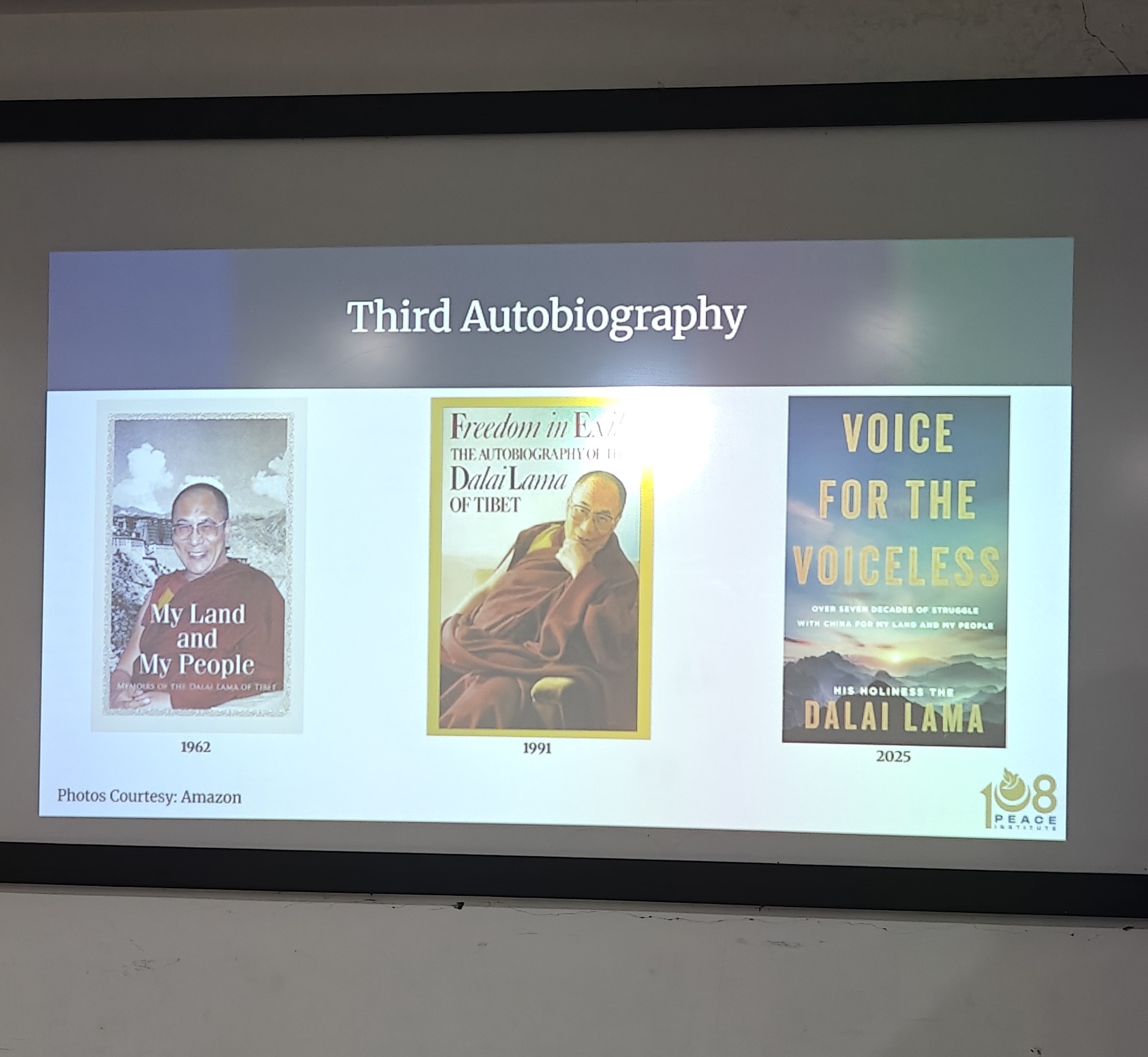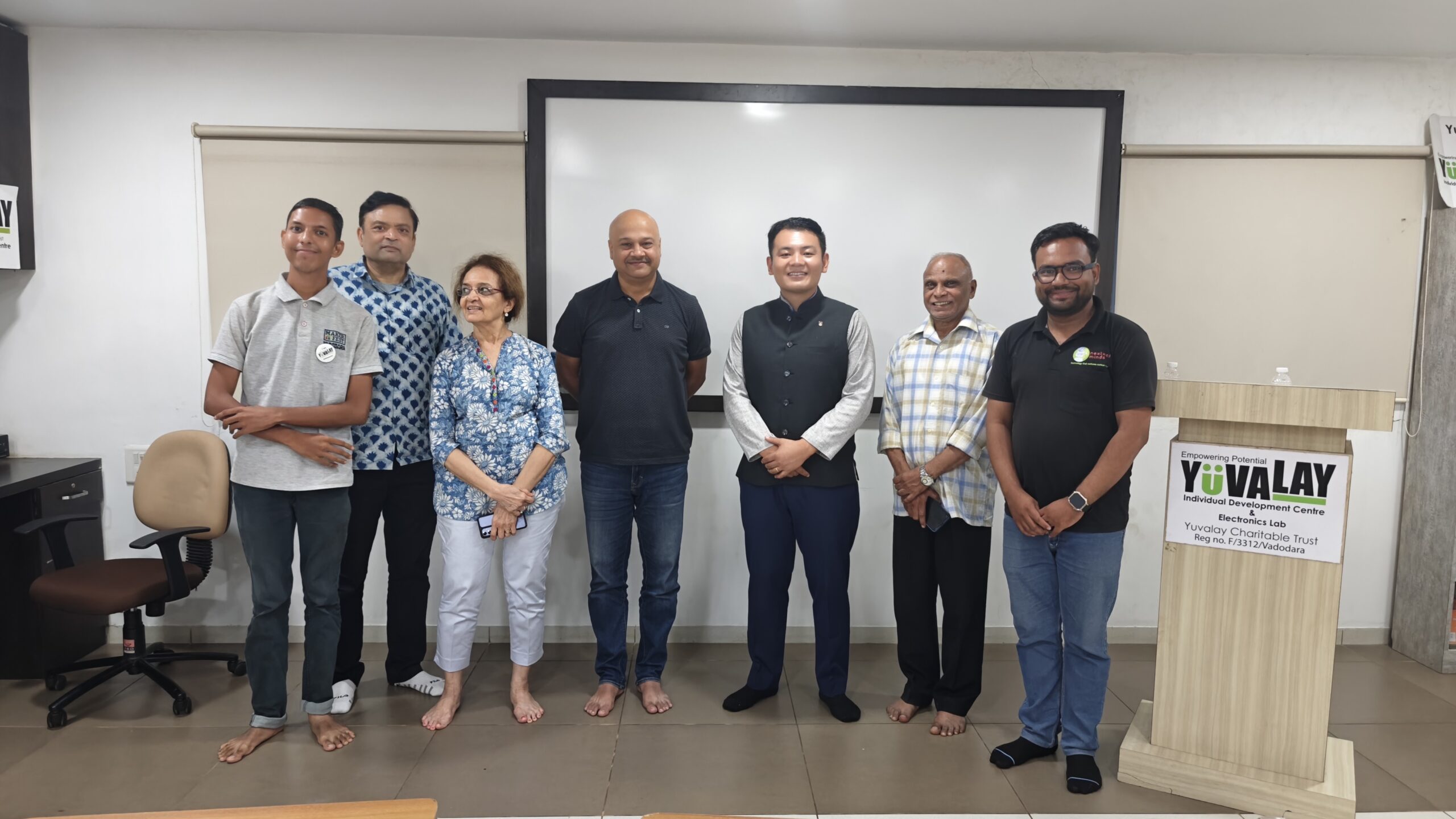July 5, 2025: On the occasion of His Holiness the 14th Dalai Lama’s 90th birthday, 108 Peace Institute in collaboration with the Samasthi Institute of Integrative Learnings based in Vadodara organised a lecture session on ‘Voice for the Voiceless: The Dalai Lama’s Political Journey’, the latest book by the Dalai Lama. The session aimed to shed light on the political legacy and aspirations of the Dalai Lama, with a particular focus on the Tibetan struggle for genuine autonomy.
The lecture was delivered by Mr. Yeshi Dawa, Senior Researcher at the 108 Peace Institute. He provided a comprehensive overview of the Dalai Lama’s political engagement with the Chinese leadership, beginning with the early years of contact, including interactions with Mao Zedong. The discussion included a critical reflection on Mao’s infamous remark, “Religion is a poison,” as well as the statement acknowledging the Tibetan people’s right to use their own national flag.
Mr. Dawa further examined the phases of dialogue between the Dalai Lama’s representatives and their Chinese counterparts. Key attention was given to the statement by former Chinese President Deng Xiaoping that “except independence, anything can be negotiated,” which served as a basis for sending several Tibetan fact-finding delegations to Tibet. He attributed the stalemate following a nine rounds of dialogue to the Chinese leadership’s lack of political will to resolve the issue of Tibet.
The lecture also addressed the global relevance of the Dalai Lama’s institution, not only in the context of the Tibetan cause but also as a beacon for global peace. It highlighted His Holiness’ public statements regarding the future of his reincarnation, particularly his assertion that the next Dalai Lama would be born in a “free world,” outside of Chinese control. This statement was examined as a strategic pre-emption of China’s claims over the recognition of the 15th Dalai Lama.
Mr. Bhargav Parekh, representing the Samasthi Institute of Integrative Learnings, expressed deep appreciation for the Dalai Lama’s contributions to global peace and India in particular. He urged the younger generation to uphold the values of compassion and kindness as a path toward both personal and societal betterment.
The lecture session succeeded in raising awareness about Tibet and the significance of the Dalai Lama’s role in both regional and global contexts. The Q&A session saw active engagement, with participants delving into the complexities of the Tibetan issue and the institution of the Dalai Lama. As a gesture of gratitude, a copy of “Voice for the Voiceless” was presented to the Samasthi Institute.


